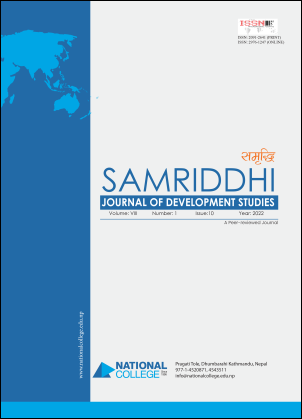Community Health System Model to support Health Volunteers to outreach underserved population: A case study of HIV/AIDS program from Tanzania
DOI:
https://doi.org/10.3126/sjds.v8i1.60980Keywords:
HIV, community health, home-based careAbstract
Major challenges for the HIV program in the Muheza district of Tanzania, East Africa were to increase HIV testing for men and retain HIV patients on treatment. The USAID funded Applied Science to Strengthen, and Improve Systems (ASSIST) project implemented the Community Health System Strengthening (CHSS) model to improve linkages between health facilities and communities to increase HIV testing and retention in care. The project formed a community team from representatives of the formal and informal pre-existing structures and their networks who worked with the local Home-Based Care (HBC) volunteers. The community improvement team members relayed information from the facility to the community households through their community group members and vice-versa. The application of CHSS model was able to increase the testing of males from 42 to 159 in one month. Over the course of seven months, the CHSS system was able to trace 39 of 44 patients who were lost to follow-up; of these, 23 went back to treatment, five had moved to a different health facility, 11 had died, and five were still unaccounted for. This case study describes the process undertaken, and perspectives of the community members and health facility personnel, who were involved in the project.




